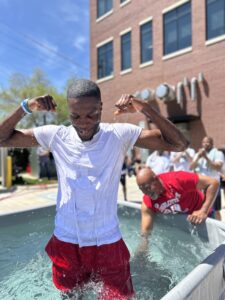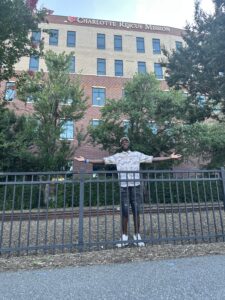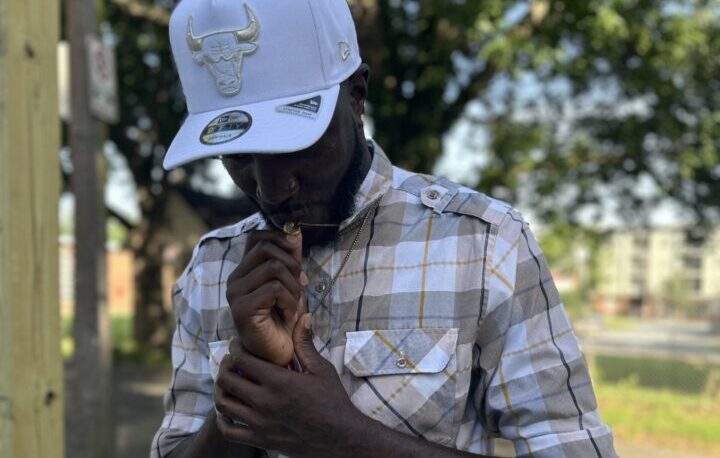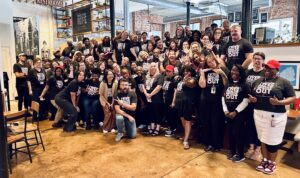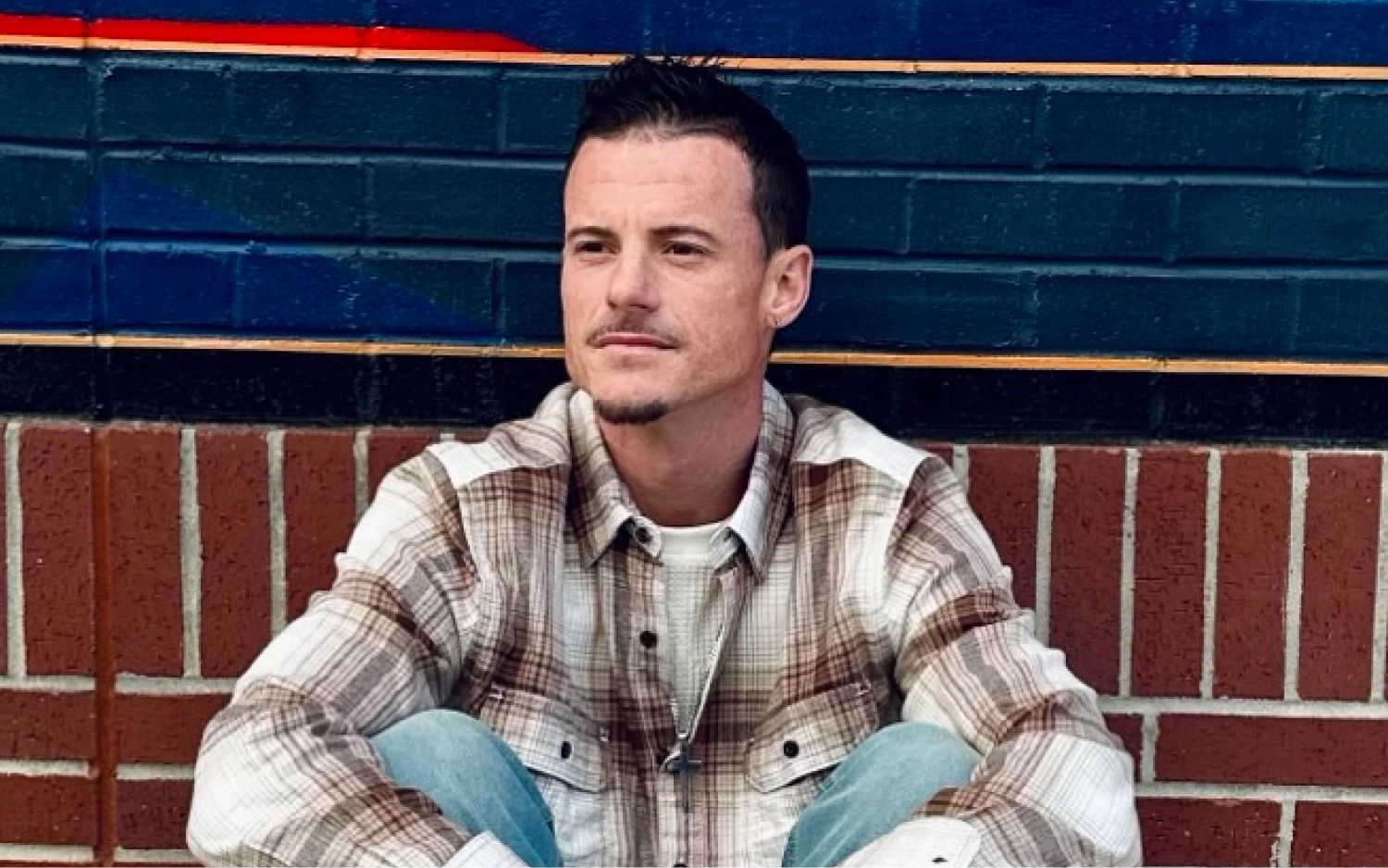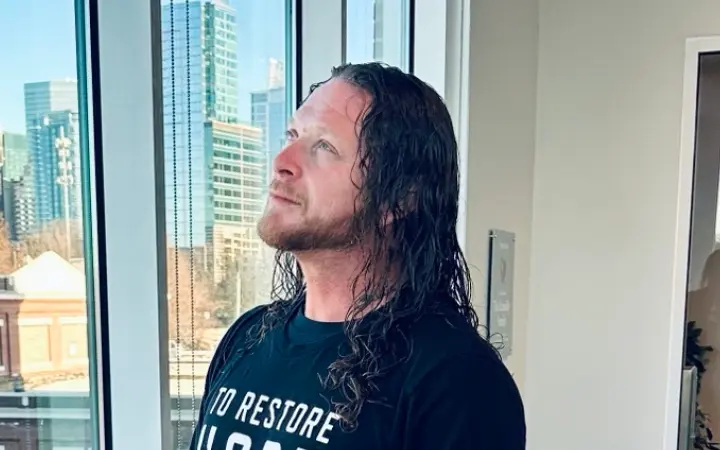Kendrick sat in the dark, waiting—for the sirens, for the red and blue to flash, for the flames to catch and devour everything. But the fire never came.
Instead, a whisper broke through the silence.
“You can’t even start a fire right.”
And then… her face. His daughter’s. Her eyes.
Then he heard the whispers of his sons—small, broken, echoing through the corners of his spirit:
“We need you, Dad.”
Kendrick was raised in High Point, North Carolina, by a mother who loved him fiercely and a stepfather who was tough but tried to guide him. He was a good kid—compassionate, inclusive, always giving until he had nothing left for himself.
But addiction was already rooted in the world around him. Alcohol was everywhere. And to a child, it looked like fun. Normal. He didn’t see the brokenness behind the laughter.
At 12, he picked up weed. At 15, alcohol. At 17, ecstasy. By 21, harder drugs. By 23, prison. He served three and a half years. A lost boy behind bars.
When he was released in 2017, he thought he was stepping back into freedom—but just hours later, tragedy hit. His best friend Monty, his brother in every way except blood, passed away. That was the first heartbreak that shook him. Monty had been there since elementary school. They dreamed together. Laughed. Created music. Kendrick was gutted.
Two years later, Kendrick’s biological father died. Their relationship had been rocky, but the grief still came—heavy and confusing. He carried it in silence, adding it to the growing weight of unspoken sadness, never quite knowing where he belonged.
And yet, God kept writing.
Kendrick became a father. First a son in 2017, then another in 2022. And in 2023, his baby girl, Kaaliyah, was born. She lit up his world. He worked hard. Even while battling addiction, he never let his children see that darkness. He kept his home clean—no alcohol, no drugs. He loved his fiancé. He was building something. Trying.
But sin sneaks in quietly sometimes—through an open door, through the people we try to save.
The weekend before his birthday, Kendrick invited a man into his home. Someone struggling. Someone he tried to pour into, the way Kendrick always had. This man was an addict, but he knew Kendrick’s rules. He was left alone only briefly—just enough time for destruction to slip in.
The next morning, Kendrick was back in his father role—routine in place. Feeding the kids. Giving baths. Putting on “Miss Rachel.” Then he dozed off on the couch.
Moments later, he woke to a nightmare. His daughter wasn’t breathing. Panic. CPR. Screams into the street. A 911 call. Prayers that felt like bargaining. But it was too late. Kaaliyah was gone.
Three months of torment followed—questions without answers, and a bottle to drown the silence. Kendrick started drinking again. First pints. Then gallons.
In January, a call from the social worker: the autopsy was in. Six days before her first birthday, Kaaliyah’s death was ruled as drug exposure.
Kendrick broke.
Blinded by rage, he went looking for the man who had been in his home that night. He wanted justice. Revenge. He tried to set his house on fire—but even vengeance wouldn’t come easy. And that’s how Kendrick found himself again in the dark, waiting for the sirens, the lights, the end.
On January 11, 2024, he bought his drug of choice. Three days later, Kendrick was dead for 20 minutes. But God.God reached into death and pulled Kendrick back. It was a miracle. A wake-up call. A second chance.
In detox, he saw a flyer for Rebound at Charlotte Rescue Mission. Kendrick didn’t want a quick fix. He wanted healing. He wanted to rebuild. He chose long-term recovery. He says, “Coming to Rebound was the best decision I’ve ever made. I learned more in 120 days than I did in 33 years. I found sobriety, and I found clarity.”
And he found Jesus—really found Him. Not just belief, but relationship. Faith that filled the hollow spaces grief had carved out. “Every time someone says, ‘If I reach just one person, it’s worth it’—I realize… I’m that one.”
He made his faith public in baptism. He stood tall in front of brothers who had cried with him, prayed with him, and saw the man God was resurrecting.
Now, Kendrick is healing. His relationship with his mom and stepdad is being restored. He and his children’s mother are finding middle ground. The case is closed. He saw his son’s face over FaceTime. He felt hope again.
Kendrick has chosen life. He’s now entering the KEYS Program, learning HVAC, with plans to earn his CDL. He works two jobs. He’s sober. He’s present. He’s in therapy. And he’s anchored in God’s grace.
Around his neck, he wears a heart-shaped necklace filled with Kaaliyah’s ashes. She’s always with him.
He says, “I never played the tape all the way through. I had a house… but I woke up on the street. I woke up bloody, blacked out. Now I know—one is too many. A thousand is never enough.”
Kendrick still has triggers. But now, he has tools. He has faith. He has brothers who walk beside him. And for the first time, he’s learned to be his own friend.
